Category: Lauren F
Lauren: Your Career in a Nutshell: A Guide to Making the Perfect Portfolio
Internship application season is well underway for journos, with most internship deadlines already passing on the first of November. However, plenty of publications are still looking for interns for the summer. You might have seen that a lot of applications call for portfolio websites, even for non-multimedia journalists. Don't fret, making a portfolio is much easier than you might think! I'm here to take you through it step-by-step, and the end result will hopefully be a portfolio that showcases all of your skills and accomplishments as an aspiring journalist.
Step 1: Create it!

As you can see above, welcome to my portfolio, laurenfrias.wordpress.com! For starters, pick a content management software (in layman's terms: a website creator) to begin building your website. My personal preference was WordPress, as I had used it before to create blogs, but other popular websites include Wix and Squarespace. Once you find the best CMS for you, it's time to name it! This is the easiest part. It's just your name! You'll find yourself at a disadvantage if the domain is already in use, but if that's the case, consider using your middle initial or middle name as a whole to differentiate. You can go the extra mile and buy your domain name (for a small monthly fee depending on the website creator that you choose), and you'll become the new sole owner of yourname.com. Congrats, now you have a website!
Step 2: Customize it!

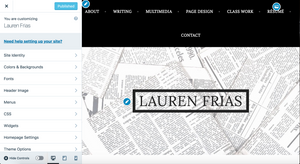
No, this is not a reiteration of the last step. Once you get the website to an aesthetic that you approve of, it's time to really make it your own. That is, it's time to showcase yourself as a journalist and make this portfolio a summation of what you've accomplished in your career thus far! That being said, make sure to write a concise About Me page with a short bio about yourself, kind of like how you would write in the introductory paragraph of a cover letter. Your portfolio is also a good place to keep an updated copy of your resumé for recruiters to find it to either screenshot or download for themselves, say in the instance that the file that you supplied was corrupted or it was not the most recent version. You should also include a Contact Me page, listing an email that you can be best reached at and a phone number. Be careful how you format it, however; there are lots of internet bots that can skim your phone number and email off your website and flood your inbox and voicemail with spam. One way that I've avoided it is through differentiating the typical email format (i.e. youremail (at) gmail (dot) com) or simply omitting the information as a whole.
Step 4: Upload it!
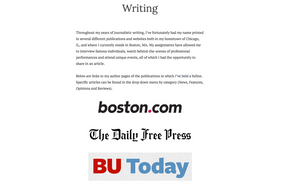
As you might have seen in the title of this blog, this is your career in a nutshell; I only emphasize this point because it's important not to make your portfolio a complete timeline of your experiences. Instead, it highlights the best parts of your past experiences and shows your potential employer in five minutes or less what you may have accomplished in five years, or whatever the case may be. In my opinion, I would upload your top five to seven clips of your best work from each of your past internships, and maybe even less so depending on how much experience you have. On my portfolio, I provided links to my work on the original publication's website, unless the article was blocked by a paywall, in which case I would create a downloadable file that had a PDF of the headline, text, publication, and date of publication. Make sure to create parent pages and child pages to easily organize your clips into a navigable structure.
Step 5: Update it!
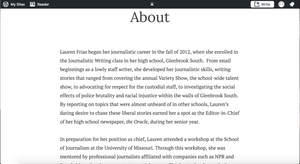
Lauren: Study Abroad Sydney 101: Tips and tricks on how to survive in the Land Down Under
G'Day, mates! CA Lauren coming to you all the way from the Land Down Under. I'm currently spending the semester in Sydney, Australia. We've been here a little over a month and a half now, and it's been anything but boring. From classes to internship preparation to weekend trips around the continent, it's still hard to believe that my time here is almost halfway over. Nonetheless, study abroad has taught me a few things that I think other students who are hoping to go abroad in the future might find useful. While I don't claim to be a study abroad expert in any way (this is actually my first semester abroad!), here are a few tips and tricks that I personally have picked up during my seven weeks abroad:
1) Keep your luggage to a minimum

The day comes that you're heading off to abroad, and you're hit with that inevitable fear of missing something that you'll need in another country. Surprisingly enough, Australia isn't as different from the U.S. as you might think. Sure, you probably can't find a few American brands of toiletries, clothes, or groceries here, but there is a bit of a thrill of testing Australian brands like a true resident. I minimized my packing to a checked luggage, a carry-on luggage, and my school backpack, which proved to be more than enough. Make sure to pack an extra duffel bag or backpack in case you find yourself buying a lot of souvenirs!
2) Do some independent research on your destination

This is true for any destination you might visit in your time abroad, but make sure to do some research on the country as a whole. Despite the many similarities between the U.S. and Australia (predominantly English-speaking, same stores and brands, a bunch of other American students), there are still a lot of differences that can be pretty jarring to adjust to without prior knowledge. It's inevitable that you'll go through the stages of culture shock upon arriving in a new country, but to minimize the effects of it as much as possible, preliminary research of Sydney and Australia in general could be really helpful.
3) Set up a budget spreadsheet

Before coming to Australia, I already kept a budget spreadsheet to hold myself accountable for all of the expenses I had, from rent, utilities, groceries, and the like. I could also factor in the income from my co-op this past semester, so I never felt too guilty when I went a little over-budget for the month. That being said, this semester is the first semester since my freshman year that I don't have an income, making it even more important for me to maintain my budget. Between groceries, weekend trips, and eating my way through Sydney, maintaining a budget spreadsheet was the only thing that is keeping my bank account from fully depleting. Seeing it all organized into a spreadsheet made me conscious of my spending on a daily basis, thus preventing me from making unnecessary purchases that would make me go over my budget. Even though you're in a new city and exploring it will definitely cost a few dollar signs, as long as you spend your money right and are smart with your budget, you'll surely end the semester with a few dollars left in your bank account without having to ask your parents for a loan here and there.
4) Travel, travel, travel!

... As long as your bank account can handle it. But if it can, definitely take advantage of the free time you have in your time abroad to see as much of the new country as you can. For the Sydney internship program specifically, you'll have plenty of time to travel during the academic phase of the program (as the study abroad program is split up half for academics and the other half for the internship). We have three day weekends for the first six weeks of the semester, which is plenty of time to explore different parts of Australia. I personally went to Tasmania, Cairns, and will soon travel to the Gold Coast in November. Not to mention the BU Sydney program also includes a four-day trip to Melbourne as well! There is a mid-semester break between the academic phase and the internship phase of the program, which most students in the program take advantage of to travel to farther destinations, like New Zealand or Bali, Indonesia. Long story short, don't get too comfortable in your Sydney apartment, because you just might find yourself in the air more than in your dorm.
5) Making friends isn't as scary as you think

f the one thing holding you back from going abroad is that your friends won't be there to join you, don't fret. Making friends may seem like a scary endeavor at first, but the program becomes so close-knit and friendly as soon as the first few weeks of the program that you'll hardly feel alone without your Boston friends at your side. Take it from me, I didn't know anyone in the Sydney program prior to going abroad, but now six weeks in, I've found some amazing friends and travel buddies along the way. It was definitely difficult to go outside of my comfort zone and fight the urge to just stay in my room and video chat my family and friends back home, but it will all be worth it in the end. What's great about these friends too is that you can still meet up with them in the States once the program ends!
Lauren F: 10 ways to spend your free time effectively
This semester, I’m working for Boston.com — the regional news and information website of the Boston Globe — as a full-time co-op. As daunting as a 9-5 might seem, it’s actually pretty surprising how much free time I end up with at the end of the day.
No assignments, no studying, no papers; I leave all the work at the office to complete the next day when my shift begins. I think I can confidently say that I’ve mastered the art of spending your free time effectively. (NOTE: I reiterate effectively, as the following may not necessarily be the most productive. Word choice is key here.)
If you ever find yourself in a lull between classes and homework, it can be aggravating to remember how you used to spend your free time all those weeks ago during winter break. Here are a few recommendations so you don’t spend all your free time simply figuring out what to do:
-
Binge a Netflix/Hulu show
This brings me back to my original point on how this post is meant to teach you how to spend your free time effectively, not productively. I’m sure this is already an option that comes most readily to us busy college students, but it’s hard to search for a good show to watch amid the vast collection that these streaming services offer. So far, I recommend New Girl for some light-hearted humor, but some other classic comedic shows to binge include Friends, Parks and Recreation and The Office. In terms of more dramatic options, I would recommend Black Mirror, Stranger Things, Shameless and Handmaid’s Tale. Yes, none of these options are particularly hidden gems, but I’ll add in my two cents to attest to the quality of these shows.
-
Start a blog
Blogging is not just for the Insta-famous or technologically-ept! I can claim that as I, myself, actually maintain a travel blog. It began as a way to show my family back home what I’m up to here and it’s still rather new as I only have one post on there (shameless plug: check it out at farawayfrias.wordpress.com), but I hope to add more to it once I study abroad. Your blog doesn’t necessarily have to be travel-related like mine, but it can revolve around anything! Food, music or even just a compilation of your thoughts — anything is a good enough theme. Even if you don’t want to start your own website, go to medium.com to get a taste of that blogging life without jumping all in.
-
Try bullet-journaling
This might be a very niche frustration, but something that I’ve always struggled with at the beginning of every new school year is finding a planner. If you’re anything like me, my planner is my lifeline; I write everything in it — to-do lists, grocery lists, reminders, assignments, recipes, future plans, even book and TV show recommendations. I have a very specific idea of the organization that my planner needs, and nine times out of ten, the planner I end up doesn’t meet all of my needs. That’s when I decided to take matters into my own hands and try bullet-journaling. It’s a hassle, yes, but the amount of creative freedom that comes with bullet-journaling makes it worth.
-
Learn how to cook
I’m not entirely sure how much this will pertain to most students, but I live in an off-campus apartment this year, which means cooking is a very large part of my life now. Previous to this experience, my culinary expertise spanned no further than instant ramen and scrambled eggs. I think it’s safe to say that so far all of my recipes are no more than glorified versions of basic foods — I use fancier spices now alongside salt and pepper — but all you need is a pan, a hot surface, and a determination to be self-sufficient and you’re well on your way to making a gourmet meal.
-
Go to the gym
Again not entirely sure how much this will pertain to most students, but I have recently gotten back on my health kick, probably thanks to the new year. But truth be told, it’s really not as bad as society makes it seem. Sure, there are health nuts and fitness gurus surrounding me while I struggle to pick up a four-pound weight, but don’t let them phase you. You’re there to achieve your own goals, no matter how big or small they are. My goal is pretty small — being able to climb the three flights of stairs to the Globe office without getting entirely winded — but it’s enough to keep me going back. And you’d be surprised how fast those two hours at the gym can fly by when you’re
-
Do arts and crafts
Arts and crafts can cover a wide variety of projects, but it’s still a nice way to spend your time without being glued to technology. Most of my crafting efforts have been put towards decorating my apartment with painted glass bottles and pressed flower canvases, but to get more inspiration, get yourself a Pinterest board of ideas today.
-
Search for work on BU’s Quickie Jobs page
Something that I think a lot of BU students might not be aware of is the Quickie Jobs page under the Work tab on Student Link. We’re college students, so obviously we like to make money where we can. Well, this page can help you with that, offering quick odd jobs to help you make a fast dollar. There are various opportunities posted, from babysitting gigs to research studies. If you have a free moment to spare, it doesn’t hurt to make a bit of cash on the side.
-
Read a book
To some, this must come as an easy option, but to the more technologically-inclined, it’s an outlet to give your eyes a rest from all that blue light. Currently, I’m reading a book by BU’s very own Professor Mitch Zuckoff, 13 Hours. And you’d be surprised how many other professors have interesting published books. You can rent books from Mugar Library with your BU ID, but if nothing there suits your fancy, it’s easy and free to register for a library card at the Boston Public Library right outside the Copley train stop. So really, you don’t have much of an excuse not to read.
- Volunteer
There are plenty of opportunities to volunteer in this bustling city, from local animal shelters, retirement homes, and even right on campus. It always feels good to give back, and it’s just a quick Google search away to find opportunities. If you’re looking for a more accessible option, check out the Community Service Center for some on-campus volunteer work.
-
Relax!
And, most importantly of all, the best way to spend your free time is to just relax. Light some candles, draw yourself a bath, and settle in with a good book. And if you’re not a bath person, I recommend getting some string lights and snuggling into a big blanket to watch a good movie. Any way that you can take a moment for yourself, do it, before the grind catches up with you and you have to return to reality.
Lauren F: B- in grade, A+ in learning experience
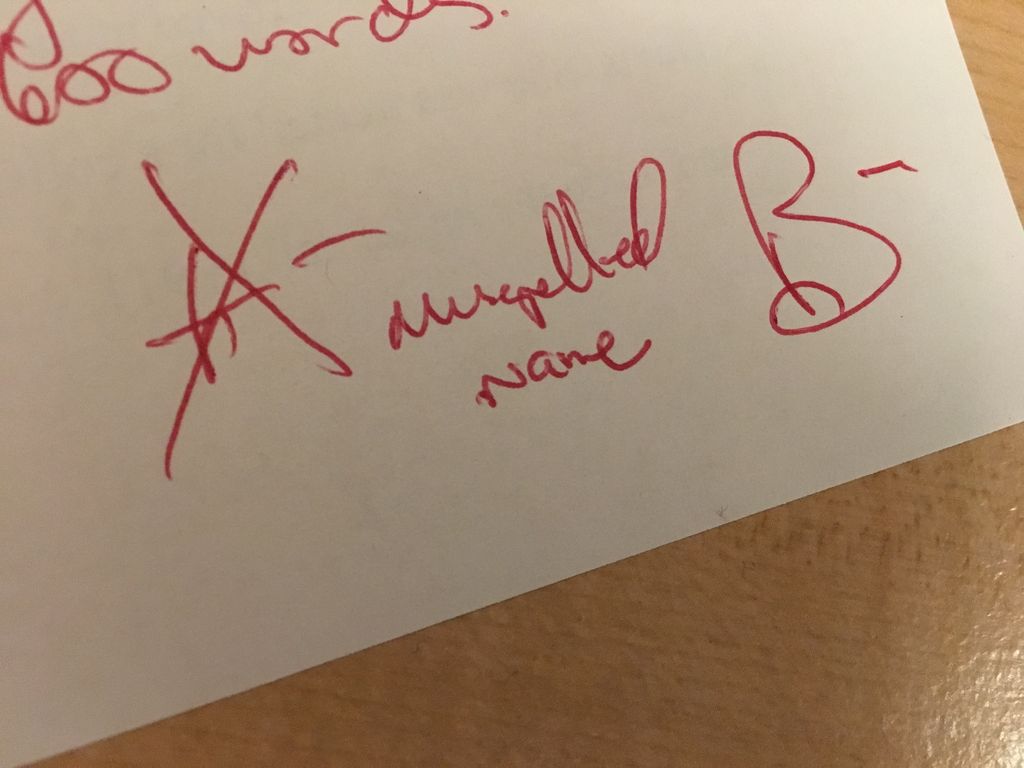
When my professor handed my graded news article back in my JO250 Fundamentals of Journalism class, the common rush of adrenaline filled my body as I reluctantly scanned my paper for common mistakes. Surprisingly enough, there wasn't as many red marks as usual; a few grammar mistakes here, a word choice suggestion there. My hopes were raised as I more confidently turned the paper over to discover my grade.
I went through a turmoil of emotion as I saw a big red A- in a circle crossed out, and a B- replacing it, with the scribbled words "misspelled name" right next to it. My eyes grazed the back page, and I saw the last name spelled wrong, a single letter making up the difference between my letter grade. I sat back in my chair defeated, reasoning to myself that all of the little corrections made on the article wasn't even good enough to earning an A.
After the wave of disappointment and self-loathing passed over me, I tried to reason with myself why I needed to make the most of the situation. I knew that my professor didn't give me a B- because I gave him bad work, the A- —albeit crossed out — was an accurate representation of the work that I handed in. The B- that I received wasn't an accurate depiction of my work quality, but rather my work ethic, in that I didn't take the careful time beforehand to read through my work.
I, of course, went through the process of finding a scape goat for having such a small mistake that I knew would bring down my grade — I only had a midnight deadline, I was restricted on word count, I had to keep track of and spell so many difficult names. But, all in all, the only person I had to blame was myself for not taking those few minutes after finishing writing to read over and make sure that all of the names were correct. Rather, I was filled with the gratification of finally reaching my word count and emailed the story in without a second thought.
While it may seem harsh to drop a whole letter grade for a single misspelling, It was a lesson for the future. As a journalist, there were reporters who could lose their jobs over something as simple as a misspelling of a name. I should've been thankful for losing a letter grade over a misspelled name and not a job at a big name newspaper. Obviously, the article won't do me any favors in terms of my grade, but it taught me a long-term lesson, one that I will definitely carry on with me well-past my time here at BU.
Lauren F: Money or Memories: Advantages and Disadvantages of Graduating Early
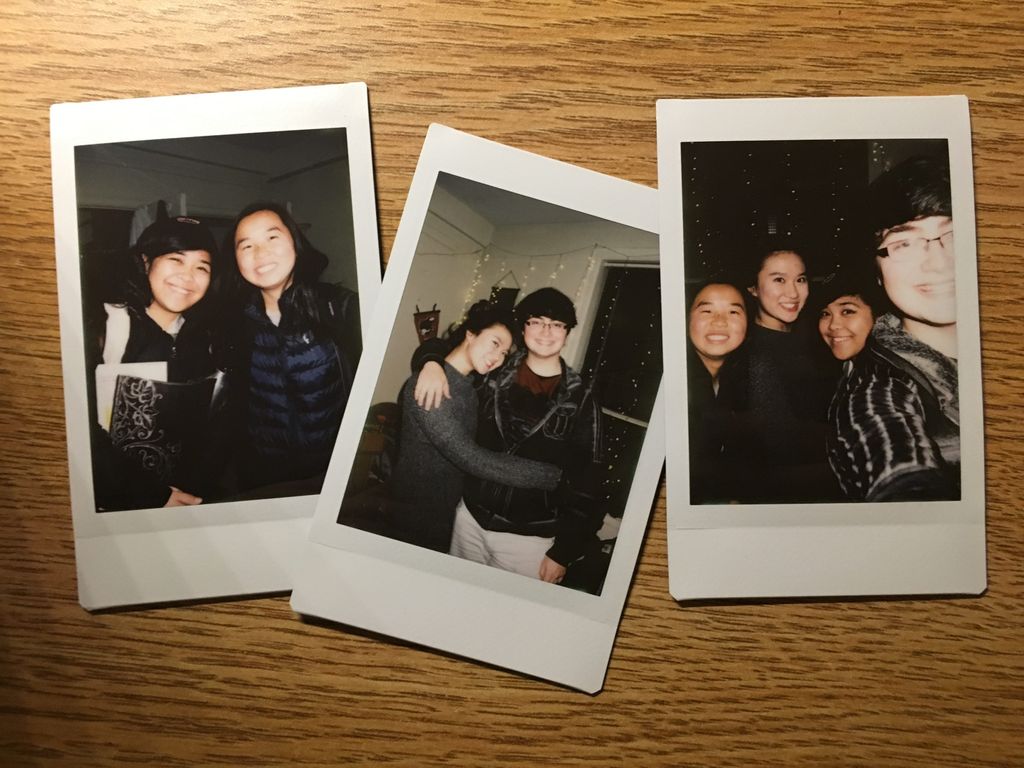
When I moved halfway across the country to a new city where I knew no one, I wasn’t scared as much as I was excited by the prospects of new opportunities and experiences in college. I was excited to learn new things, meet new people, and make new memories.
The financial aspect of college, however, looms over all of these bright aspirations like an ominous dark cloud. Instead of being a bright-eyed, bushy-tailed freshmen like so many of my peers, I spent several sleepless nights pondering and calculating student loans, interest, and debt as a whole. This dark cloud was so formidable, in fact, that it convinced me to graduate early.
I came into college with several AP credits, enough that I was already more than a semester ahead at the get-go. Feeling high and mighty already having a quarter of my Gen-Eds under my belt before the first day of school, I was ready to charge through these last few years of school and get to starting the next real phase of my life: adulthood (a.k.a. getting a job).
Now bring in the big, dark cloud. I began to consider the possibility if I made that semester — which I had planned to just take extra classes to learn more about the different facets of journalism — into a whole year. The amount of money I would save was immense, especially if I took summer classes at summer school to knock out the remainder of my Gen-Eds. Taking the better of me, I went through the process of finishing my Gen-Eds, and am currently working on my major during my technical junior year, despite it being my second year on campus.
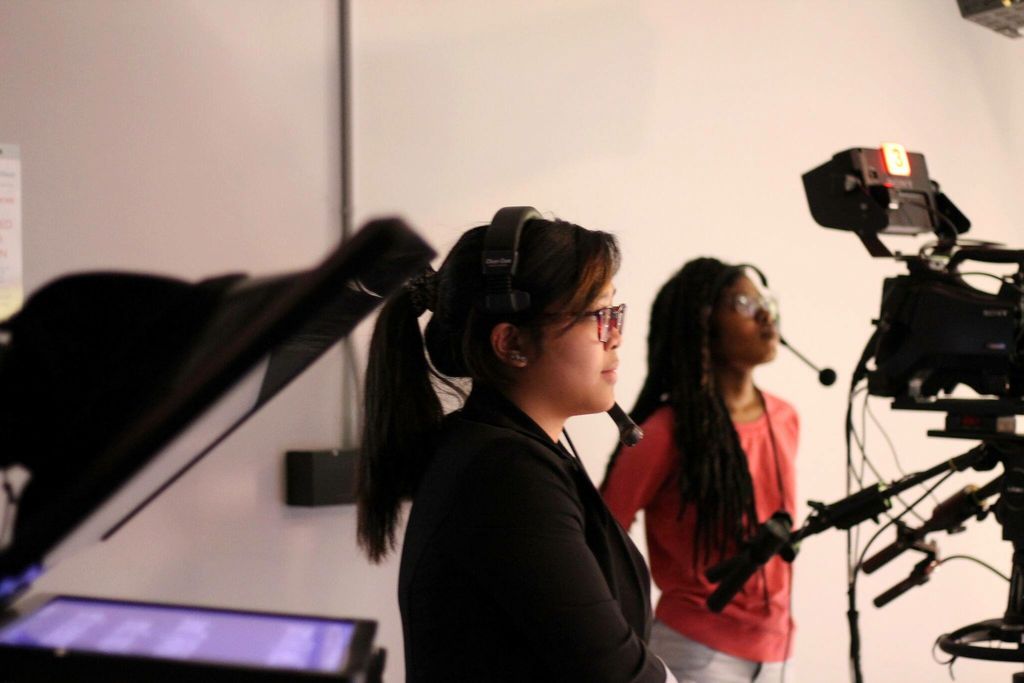
While some may believe that graduating a year early just brings you even closer to the light at the end of the tunnel, it also forces you to be mindful that your time here is limited, so much so that you have to take advantage of every chance and opportunity you have here. I’ve never been one to enjoy going to school and doing homework, but I did love the subject matter I would learn through the classes I took. I loved the friends I made who helped make long lectures more bearable. And I especially loved that all of the things I was learning contributed to me to being a better journalist.
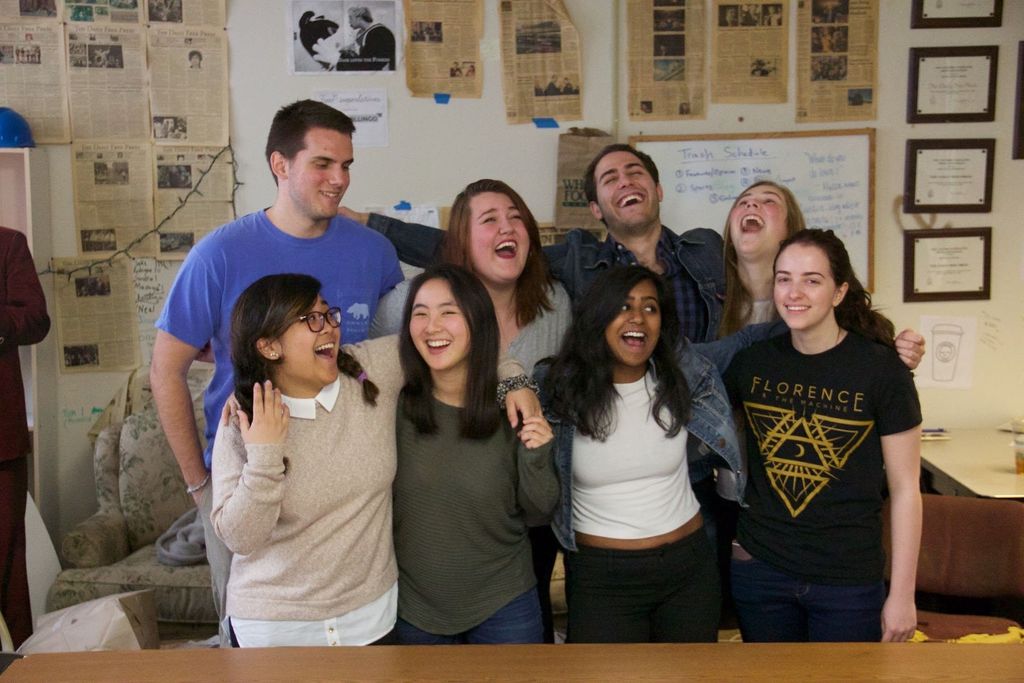
Nonetheless, as the saying goings, “Learn to stop and smell the roses once in a while. You never know what you’re going to miss.” I do have a full year to come, not to mention a pretty nerve-wracking senior year, so I constantly have to remember not to get ahead of myself. I have plenty to do and plenty left to experience, and I’m glad to say that I’m not wasting any minute I have left on campus in Boston before I spend my last year abroad. I’m an editor for the Daily Free Press, an on-camera reporter and production assistant for BUTV10, and even a percussionist in the BU Marching Band.
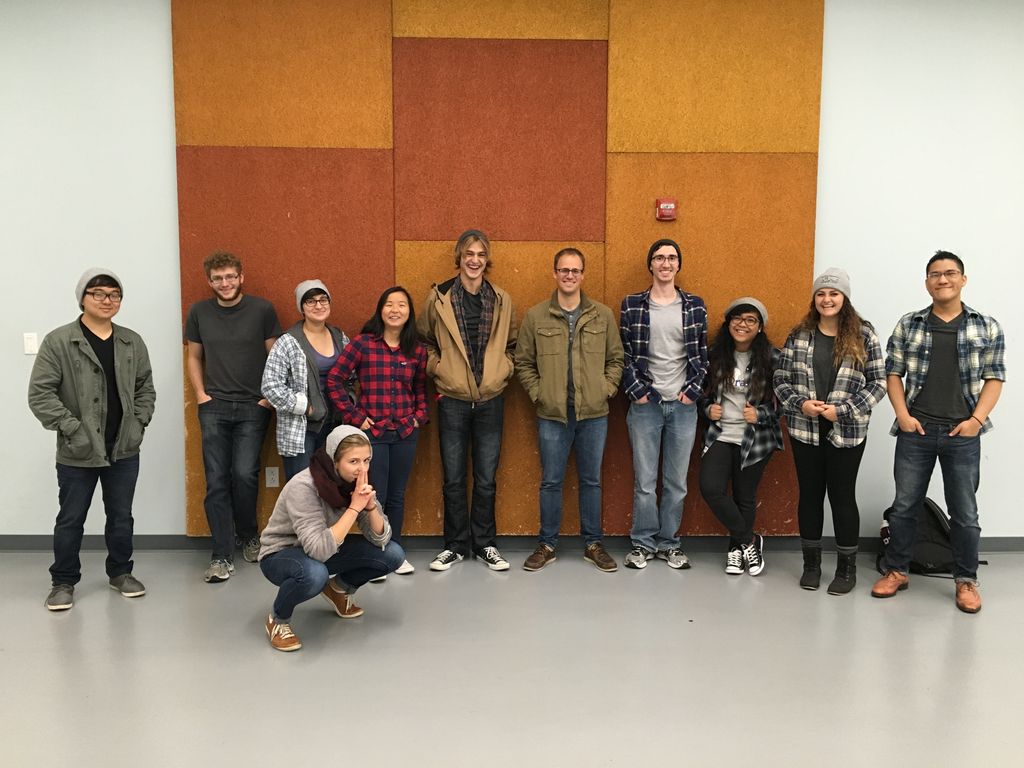
I currently live with some of my best friends, and we host fun dinner parties and study nights every once in a while when we feel particularly shut in with just the three of us. In the past, I’ve gone on day trips to high-powered New York City and unassuming cities like Providence, Rhode Island and Port Clyde, Maine.
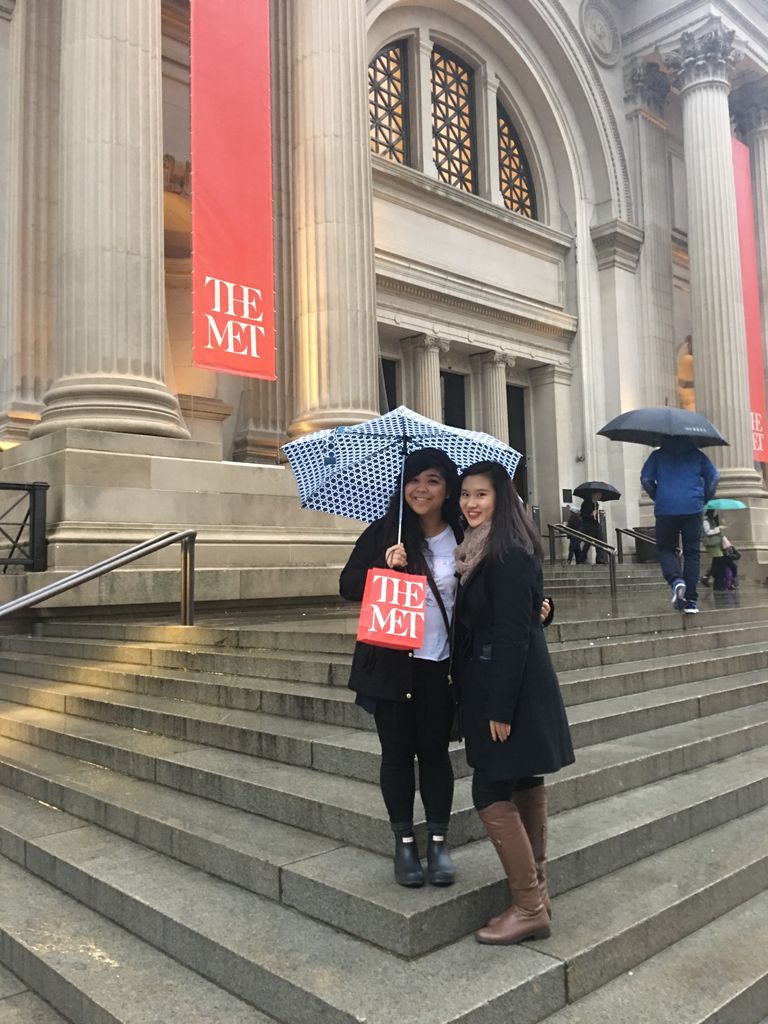
Don’t think I skipped out on exploring the city that we’re already residing in; I’ve already spent the last year and few weeks of school exploring inch of Boston from end to end, so much so that I can honestly say that I genuinely consider Boston my home away from home.
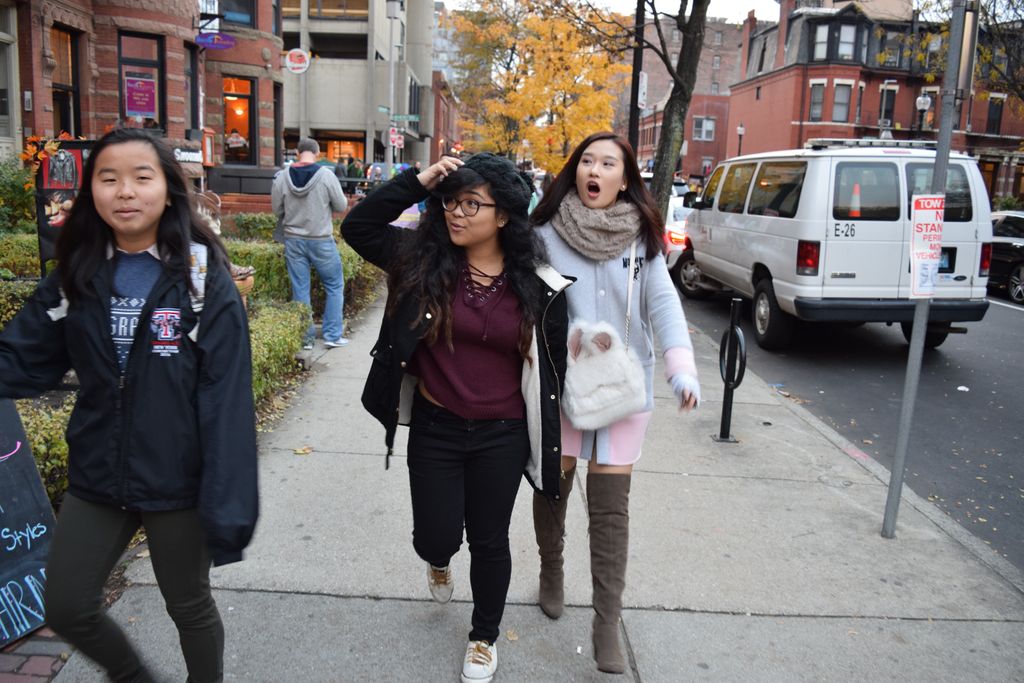
To put it briefly, if you’re considering graduating early, all I can offer is contemplate what you want to value from your college experience. If four years is enough time for you to get the most out of this experience, then absolutely go for it. For me, someone who’s eager to create a name for myself, three was just long enough, driving me to never take my time here for granted.
Despite how close I am to graduation in comparison to my peers, college isn’t nearly as over as it seems. In fact, I think the experience is just only beginning.

Lauren: Extracurriculars are the New Classroom
As an associate editor for the Daily Free Press and an editorial intern for BU Today, some would think I have more experience than I actually do. No, I don’t have a degree in communication or journalism (yet). No, I haven’t even had internships with big name newspapers (yet). I’m just your lowly BU student journalist with five or some years of actual journalistic experience behind me.
Having the primary idea that I would succeed as a neurologist, I took my slight disgust at seeing the inner human body as a sign that it wasn’t the right path for me. Though I stopped have this career aspiration only as a high school freshman, I felt like I had no direction, jumping to find different passions in music, psychology and photography, but nothing stuck.
I happened upon journalism on accident, joining my high school’s Journalistic Writing course when I begrudgingly found out that I couldn’t fit a photography class into my freshman year schedule. But I stuck it out, relishing the experience rather than resenting it. When I made the decision to pick up journalism as a career out of the blue, I knew the only proper journalistic thing to do was to get more research and experience.
But what did I know? The only paper I’ve ever written for was my high school newspaper, the Oracle, along with some offhand participation in my elementary and middle school paper, the Wildcat Times and the Tiger Tribune, respectively. I'd written for my town's local newspaper as well, but none of my articles would reach a readership higher than a thousand at best. Coming to one of the best journalism schools in the nation was nothing less than daunting to me.
My first day back in September was nothing like I would have ever expected. I was easily able to become a part of the FreeP here, and join a few other journalism things on the side (BUTV10, BU Today, etc.). Despite not having any huge internships behind me, I was given as equal of an opportunity to learn about journalism, in and out of the classroom. While I was still surrounded by former Globe co-op participants and former NBC interns, I wasn’t a fish out of the water here, but I was still a small fish in a big pond.
All fish-related colloquialisms aside, I truly do believe that extra curricular activities truly do prepare you for the professional world of journalism more than you may think. They provide you with helpful connections (and lasting friendships) with people, while exposing you to a journalistic culture that a 50-minute discussion just won't do.
Seeing that I only have been a BU student for a little more than a semester and a half, I still have a lot to learn as the rest of the of my time here progresses. Thanks to the guys and gals here at the College of Communication and beyond, I know that journalism was a good choice to pick up as a career. Sure, I have yet to find a voice and to stop being awkwardly detached in phone interviews. Sure, I sometimes throw in an Oxford comma in my articles on accident. But that all comes with time and practice, something I hope I’ll have in years to come. And though I didn’t know it in the past, I would have much rather taken J-writing over a photography class any day.
Lauren F: Music and Journalism Are Not Mutually Exclusive, and I’m Living Proof
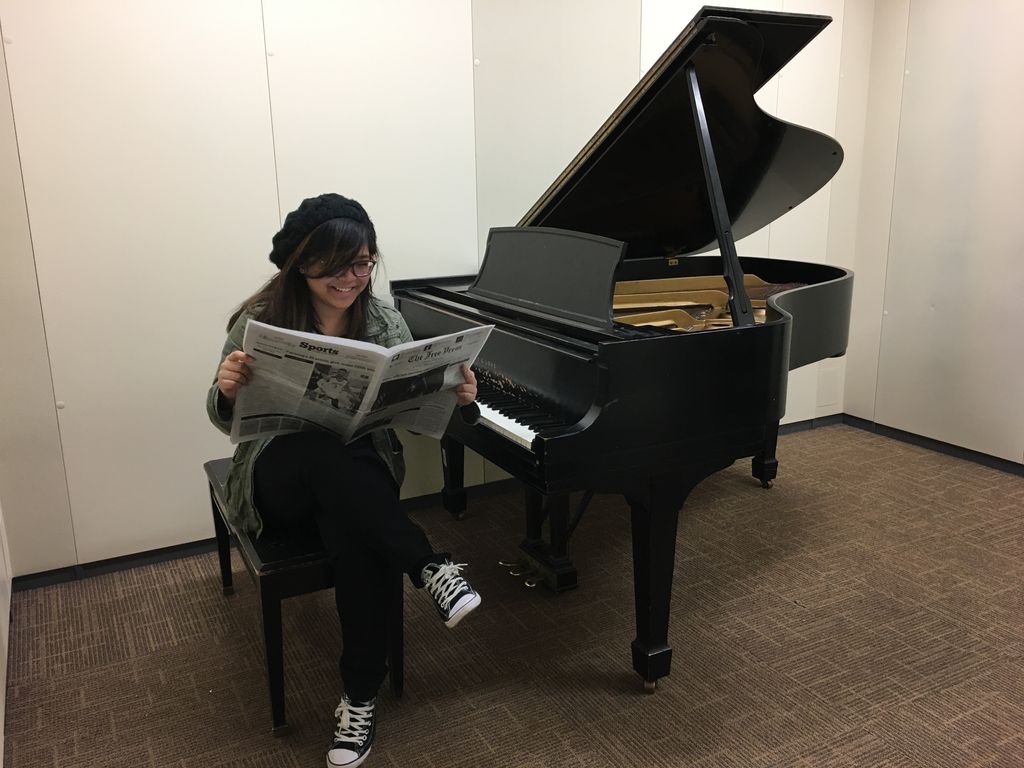
Welcome to my first blog post of the semester! My name is Lauren Frias, and I'm a freshman in the College of Communication at BU studying journalism. I'm currently serving as the Catalyst associate features editor for the Daily Free Press, the independent newspaper on campus. I'm also a production assistant and reporter for BUTV10's On That Point, an award-winning news station at BU.
Because of my pretty heavy involvement in the world of journalism, I always get a shocked glance from others when I tell them I'm a part of the marching band, as if it's something that they never would peg me to do. Granted, it could also be due to a lack of familiarity, but, to me, I feel like I identify as much of a musician as I do a journalist. While I may not be a music major/minor or have vast musical knowledge, a bar of music is just as important to me as a byline.
I started learning how to play piano when I was seven years old, taking lessons with a nun who played the organ at my local church. From then on, I was the opening performer in our annual recitals, as well as various school performances. I even performed with a jazz ensemble playing jazz piano (which, in my opinion, was more difficult than any original classical pieces I learned to play). Apart from being a pianist, I also played percussion since I was in the fifth grade, participating in symphonic band, orchestra, and--my favorite of the three--marching band, which I still do here at BU.
My appreciation for the arts gave me some perspective on what kind of stories I had a preference for covering. For the FreeP specifically, I covered events such as the pirate (yes, pirate) ballet, Le Corsaire, and Ace Plays Orchestra, a concert featuring an electric guitar at the forefront of a traditional orchestra (I linked my stories because self-promotion is a shameless activity).
Because BU offered me opportunities such as FreeP and the BU Marching Band, I'm able to simultaneously explore my passions, just as I did in high school. Obviously not to the same extent because of the more strenuous school and work schedule, but still existent nonetheless. And I hope other students follow suit--continue to pursue your side passions apart from your actual major! Even if it doesn't do anything to aid you academically or professionally, it's all about making the most of your college experience while you're still here. While I will continue to despise the constant rush to get from band rehearsal to an event that I'm covering, I wouldn't have it any other way.